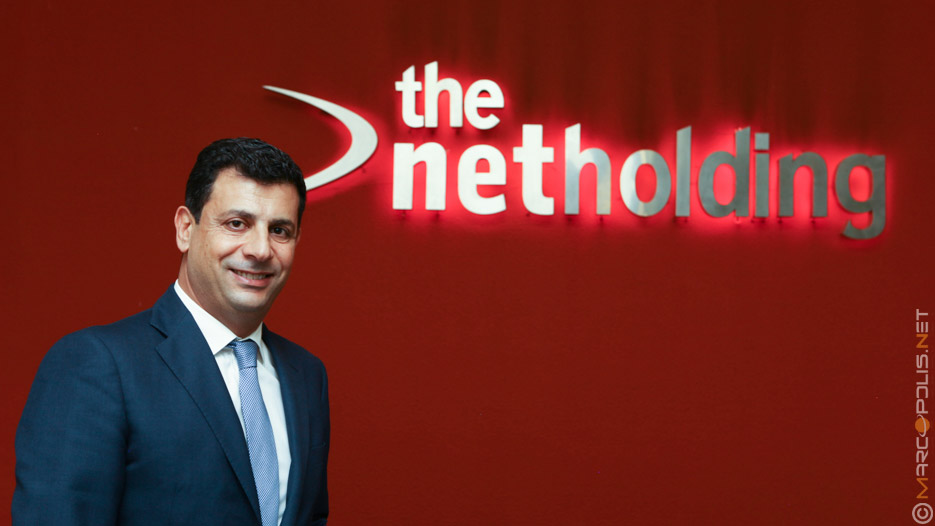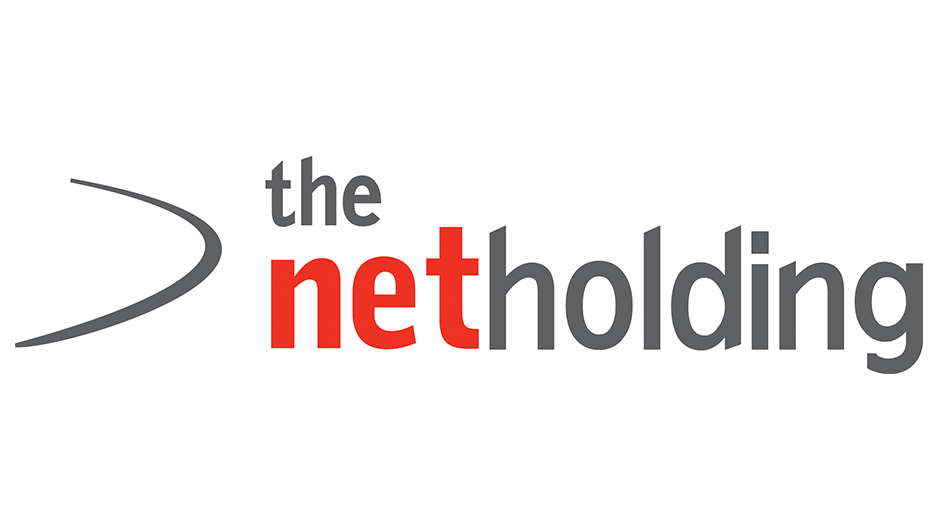The Net Holding in 2015: Introducing New Logistics Models for The Middle East
“There was a major change in the transport trade. The lack of a ground service led us to create a new solution, not only us but the whole transport industry.”
Interview with Mourad Aoun, CEO of The Net Holding

Security and political stability are indispensable pillars of a driving investment climate in any country and Lebanon is no exception. Given the current situation in the country and the surrounding region, how would you evaluate doing business in Lebanon in 2015? How is the current status in the region impacting your company in particular?
Obviously, security is a major challenge. Doing business in a volatile environment is very difficult because it doesn’t allow for stable revenue. It also prevents proper planning as current constraints are directly affecting our budget forecasts. For sure what is happening in the region is not only impacting our business in Lebanon but is also affecting it across the Levant and the Middle East where we are operating our own offices. Be it in Lebanon, Syria, Jordan, Iraq or Turkey, stability is key to our 2020 strategy, to our growth, and to our future plans. For sure, we would like to maintain good business and keep the same levels of growth we are aiming for, but this is very difficult in an unstable, insecure situation.
What would be your assessment of the logistics and shipping sector in the region? How does The Net Holding fit into the picture and respond to the current market needs?
We have created a new company called Net Critical that is specialized in operating Aircraft on Ground (AOG) and pharma logistics.
In fact, due to the security situation and what is happening in the region, there was a major change in the transport trade. The border between Syria and Jordan has been closed which impacted business in Lebanon tremendously. No trucks are allowed to move. We cannot provide any land freight service to our clients and due to the fact that Lebanon’s exports and imports are heavily dependent on land transport with the Arab countries, such restriction has really impacted the economy. The lack of a ground service led us to create a new solution, not only us but the whole transport industry. This is where a lot of effort has gone into finding a solution. Most of the vegetables and fresh products are now being exported by air. A lot of imports or exports are also being done by sea to the neighbouring countries. In short, the major change that has happened in the country in terms of logistics is in the industry’s adaptation to use air freight when it makes sense economically or ocean freight for bigger quantities.
The government is trying to help the sector because of this change.
The government is trying to subsidise some of the trade because the alternatives set in the transportation industry are much more expensive and directly impact traders exporting from or importing to Lebanon. The other challenge is about transit time, particularly where there is no direct shipping service between Lebanon and the other country. The government was trying to establish a kind of a Roro vessel where the truck can roll onto the vessel up to Jordan and from there continues by road. This alternative turned out to be expensive because it builds up costs – you have the cost of using the truck as in the land freight and the cost of moving the same truck by ocean. The shipping lines have now established a direct route between Beirut and Jeddah in Saudi Arabia which is the biggest market. So cargo is being moved through this lane by ocean after which it is normally dispatched to the other countries. These initiatives have been positive to a certain extent. I am not sure how much such efforts have helped but they certainly brought an added value to the exporters so that they could do business much more easily. Before this, exporters were randomly shipping by air or by ocean depending on their needs and their capabilities.

So we can say that the current situation is having a positive impact on your business?
To the extent where traditional land transport was mostly directly handled by truckers, these changes brought about by international roads closure have led to a surge in airfreight and ocean freight volume. However, one must interpret the numbers correctly. The increase in port activities is not due to a bigger economy, it is due to imports after the closing of the border between Syria and Jordan. It is not that we have had growth in the market; it is that we have had a change in the model of doing logistics in the country.
Since our interview last year what have been the major achievements for the company?
We have created a new company called Net Critical that is specialized in operating Aircraft on Ground (AOG) and pharma logistics. The company is based in Dubai and is so far working in five countries, namely Lebanon, Jordan, Iraq, Turkey and the UAE. We are doing clinical trials for companies like Pfizer or Roche that bring experimental drugs into the countries. These medicines or vaccines need to be transported in a certain temperature controlled environment. We clear them, take them to the hospital and these hospitals then use the treatment on a group of people who agree to do the testing. We then take back blood samples to the laboratories. So we have created a much specialised business in the region that we believe is going to flourish. This is one new activity we have been developing. The other division of Net Critical serves the aerospace industry in what we call AOG services that require quick logistics response time to repair or change a part that is keeping the aircraft on the ground. We provide a service that allows the aircraft to move on very fast. This is the latest business that we have created and that we have focused on as a group. Net Critical is going to play a major role in the future because this is a business that doesn’t really exist in the Middle East. As such, we are bringing the concept along with the best practices and the expertise we have acquired from our European partners. We want to make sure that the same level of services and requirements that are being set in Europe are being applied here in the region.
You do not repair the aircraft, you just bring the materials—correct?
I will give you an example: a few months ago a Lufthansa aircraft was flying out of Beirut and had birds coming into the engine, leading the plane to turn around and land emergently. The Aircraft was grounded as it needed to replace its engine. We moved the heavy replacement part from Frankfurt to Lebanon. The Special Cargo arrived at 2am, was cleared in no time and delivered to the engineers to install it. Then, we took away the faulty engine to send it back to Frankfurt… This is typically the kind of work we do in terms of AOG at Net Critical.
You have mentioned your 2020 strategy, what are the main pillars of that strategy?
Our 2020 strategy is the set of objectives we have committed to reach by our 25th anniversary. It’s the set of targets we need to attain despite what is currently happening in the region. The strategy is based on three pillars. Firstly, we have defined the sales turnover and the size of the company that we want to achieve in the region. It is doable if we keep on pushing and maintain sustainable efforts. We know that at a certain time even though the situation looks unstable, things will change. For example Syria is currently practically idle but the day will come with the rebuilding of Syria that it will represent huge revenue. The second pillar we are focusing on is really creating excellence in the service as this will allow us to be a major, premium logistics provider. Having such service levels imply working a lot internally on the concept of operations excellence, customer experience, efficiency and having the right people in each position in order to provide the consistency that will allow us to grow in terms of sales. It is really a closed loop. Our third aim is to become the best employer in the region. Being the best employer means creating the best working environment for everyone which would incentivise talents to join us. Having the right working environment will allow people to work better and to provide excellence in service and this in turn will allow us to grow and reach our objectives.
These are the three pillars we are focusing on and I am sure that despite of what is currently happening, if we keep on concentrating on these objectives, it will pay back. Probably not in 2015 but in 2016 or more probably in 2017. It will come. Even though 2015 has been difficult and 2016 could be similar, if we keep on doing what we are doing and doing it correctly, 2017 will show a correction. Then, we will see a 40% increase instead of 10 because everything is in place. Our people know exactly what they are doing, they are in position, and are focused on what is important and what needs to be done in order to stay in the lead.
How about in terms of your regional expansion?
The name of the game today is Grow in Synergy. We need to synergise and we need to consolidate our position. We are already operating in difficult countries. Expanding geographically is not always the right move. Probably looking at different markets would be interesting depending on the dynamics. We won’t talk about things that are not tangible today but we are definitely consolidating our position. Already we are in Lebanon, Syria, Jordan, Iraq, Turkey and Dubai and those are very important markets, so if we can consolidate we will be able to grow. Looking at different markets could be an option but we will wait and see how things change politically.
You said that you have European partners for these new services. Are you looking for more partnerships and in which area?
In fact we did not create the partnerships. These are European or American companies that are looking for professionals that can ensure the same level of service they are providing to their clients. In our region, we represent companies that are specialised in AOG or clinical trials. Because we understand the region and its dynamics, we are able to deliver as per the international standards in difficult countries or in complex environments such as in Lebanon, Jordan and Iraq.